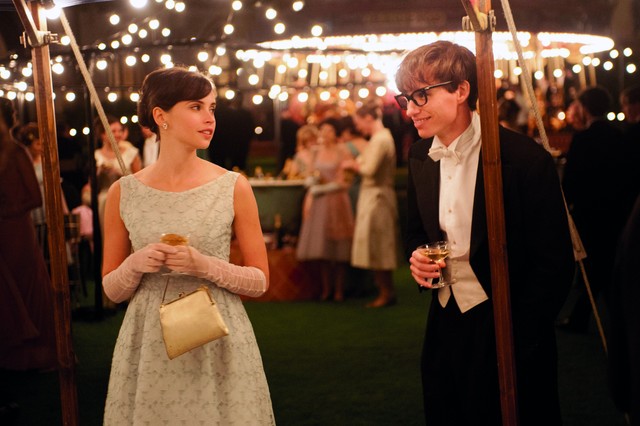Film Review: The Theory Of Everything
Love Is A Black Hole In Surprisingly Romantic Stephen Hawking Biopic


baby. Wanna hear my theory on space-time singularities as they relate to non-rotating black holes?”


